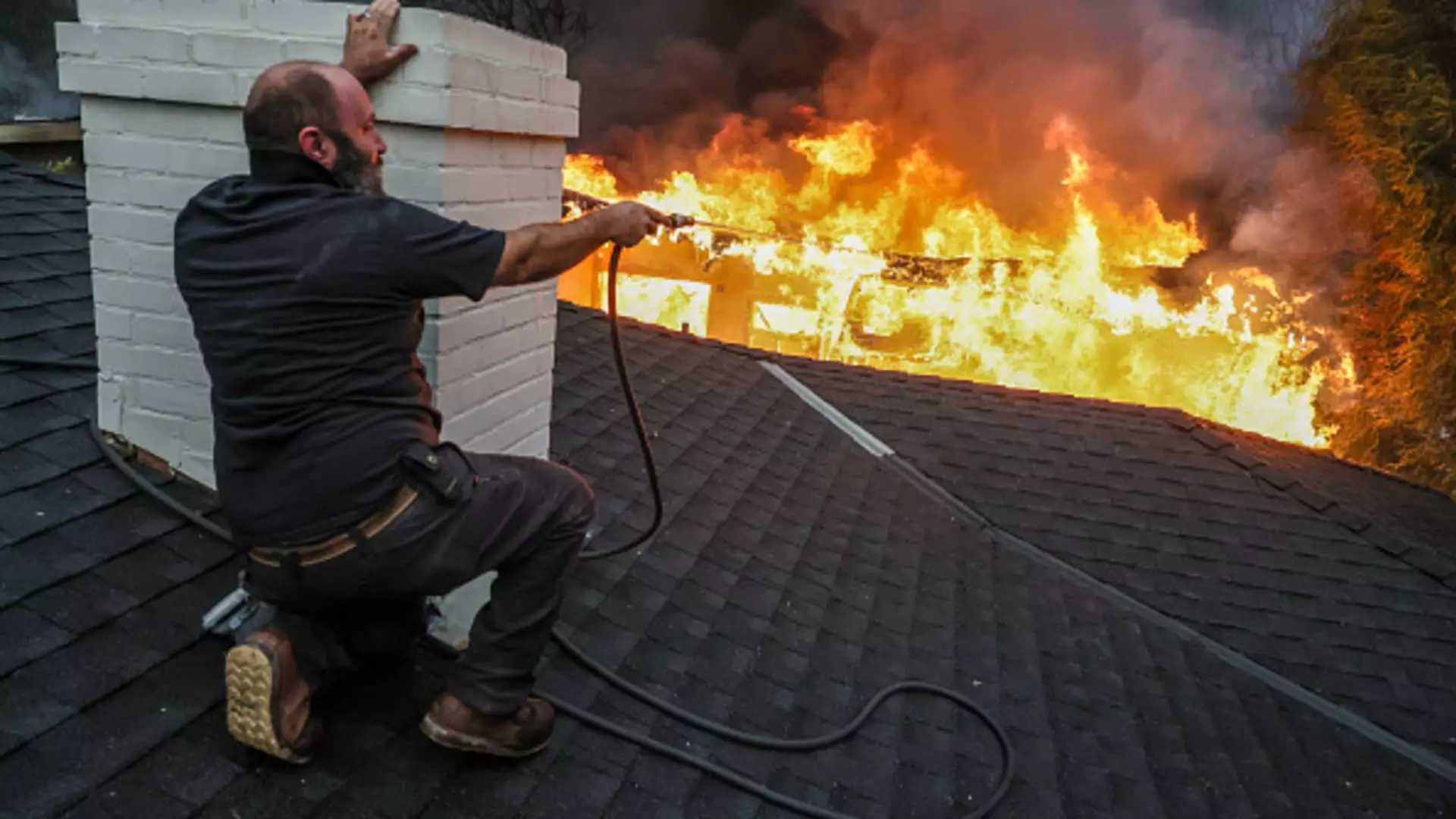The recent surge of wildfires in California, particularly around the Los Angeles area, has thrown utilities like Edison International into turmoil, reflecting heightened concerns among investors. Following the immediate threat posed by raging fires and aggravated by forecasted strong winds, Edison International’s stock plummeted over 10% in one day, signaling not just a reaction to market conditions but also deep-rooted fears about operational viability amidst natural disasters. This scenario brings to light the ongoing challenges utility companies face in disaster-prone areas.
Evacuations and Utility Outages
As wildfires led to the evacuation of tens of thousands of residents, Edison International reported outages affecting over three million customers. These outages raise pertinent questions about the efficacy of utility companies in managing their infrastructure during crises. The California power landscape has grappled with wildfire management for years, especially since prior incidents have been tied to equipment failures. While officials assert there is no current indication that Edison’s equipment sparked the latest fires, concerns linger regarding the overall readiness and preventive measures in place, underscoring a growing pattern of operational failures in crisis management.
Wildfire Liability and Financial Implications
The financial repercussions for utilities during fire seasons can be devastating. For reference, Pacific Gas and Electric (PG&E) had to file for bankruptcy in 2019 primarily due to massive liabilities stemming from wildfire incidents. Although the company emerged from bankruptcy the following year, the fear of similar scenarios lingers for other utilities, including Edison International. Notably, California’s legislation, such as AB 1054, limits utility liability moving forward, providing some buffer against excessive financial damage. While this protective measure is reassuring, it does not fully absolve investor concerns, who may now be approaching these stocks with a ‘sell first, ask later’ mentality.
The ripple effects of the wildfires were felt across the board, with other utilities like PG&E and Sempra experiencing respective declines of 3.7% and 1.7%. Understanding investor sentiment during these turbulent times becomes crucial, as concerns over uncontained fires lead to a spike in risk aversion. Analysts like Julien Dumoulin-Smith of Jefferies highlight that while liability protections offer some comfort, the unpredictable nature of wildfires keeps investors on edge. This cautious optimism, coupled with fear of potential future liabilities, creates an environment of uncertainty for utility investors.
Moving forward, it is paramount for utility companies like Edison International to bolster their infrastructure and create robust emergency response plans. This includes investing in fire mitigation strategies, enhancing grid reliability, and improving communication systems during emergencies. The recent events serve as a stark reminder of the urgency with which these companies must operate to ensure safety and reliability amidst ongoing climate challenges. Only through proactive measures can utilities hope to regain investor confidence and navigate the complexities of operating in wildfire-prone regions effectively.

Leave a Reply